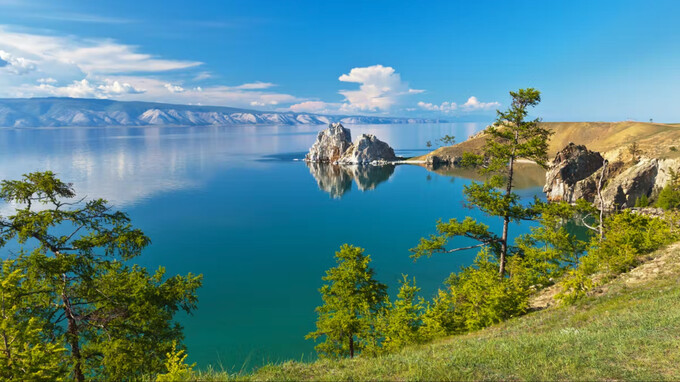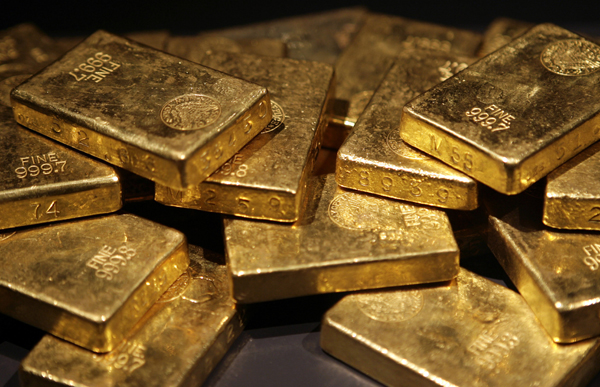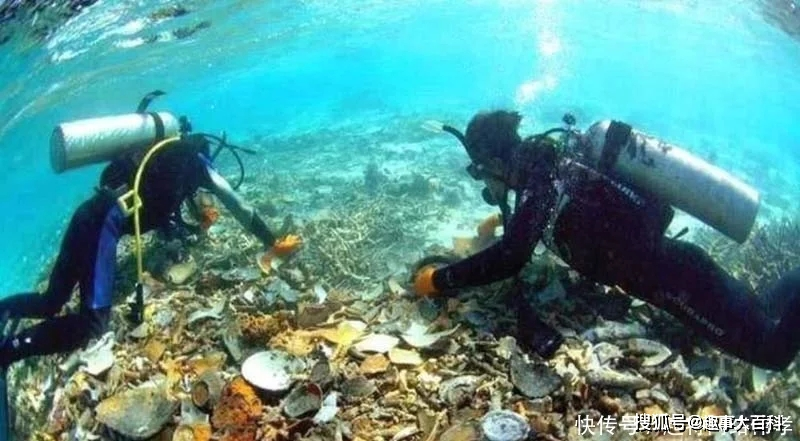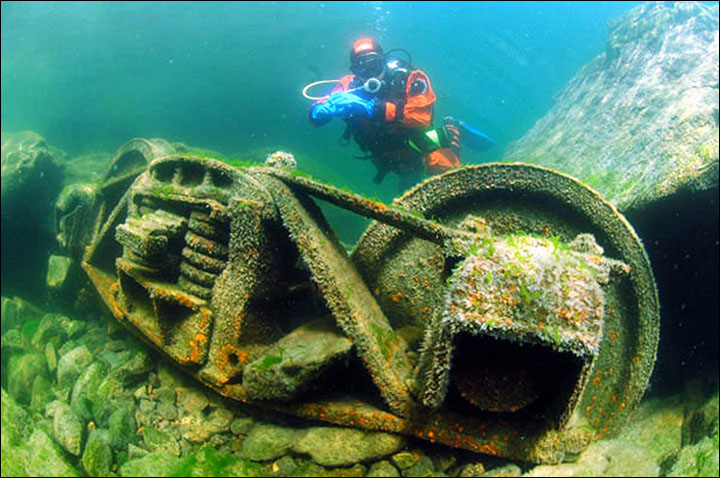Α huge treasure consisting of 1,600 tons of gold is said to have remained dormant for hundreds of years at the bottom of Lake Baikal like a great mystery. Αlthough many people covet, no one has dared to find the answer to this mystery worth a fortune.
The Guinness Book of Records has recognized Lake Baikal in Russia as the deepest lake in the world, with an area the size of Belgium and storing up to 20% of the freshwater on the entire earth. Therefore, this place also has special names such as “Source of the World”, “Moon Lake”, “Beihai”, “Pearl of Russia”, “Sea and lake of countless tears”.
Lake Baikal is renowned for holding the largest volume of fresh water by volume of any lake in the world. At over 5,300 cubic kilometers of water, its immense size and depth of nearly 7,500 feet have long made it an enigma to explore. For decades, sonar surveys have detected anomalies on the lake floor that could indicate sunken structures or treasure troves, yet no definitive proof of the legendary gold has been found.
Expeditions to uncover the secrets of Lake Baikal and its possible hidden riches continue today with advanced technologies, but this deep, cold lake remains largely unmapped and mysterious. The treasure of Lake Baikal may stay dormant yet, waiting for the intrepid explorers who can unlock its secrets.

Lake Baikal in Russia as the deepest lake in the world
Lake Baikal remains pristine, concealing many discoveries few comprehend, thus attracting adventurous explorers craving to uncover its secrets. In winter, Baikal vanishes beneath a sea of ice, surrounded by vast, majestic panoramas.
The immense lake combined with countless snow-capped peaks crafts a sublime spectacle.
Numerous legends surround Lake Baikal. The most remarkable claims 1,600 tons of gold lie at the bottom of the world’s deepest lake.
In 1917, as Tsar Nicholas II’s regime collapsed, nobles embodying feudal Russia’s old guard sought to transport treasures westward. While traversing Baikal, they encountered pursuers. At this juncture, nobles had removed 1,600 tons of gold, sinking it into Baikal’s depths.
Another version holds this gold belonged to Tsar Nicholas II himself. En route to hiding it elsewhere, their group passed through Baikal but faced thawing ice. As the lake was too immense to escape swiftly, the entire 1,600 tons of gold and escorting army plunged to the lakebed.

If this ɩegend is true, then why hasn’t anyone managed to salvage this huge amount of gold?
The first reason is due to the structure and location of the lake. In 2015, according to people around the discovery area, the deepest point of Lake Baikal could reach 1,637 meters and the total volume of the lake exceeded 2.36 billion cubic meters. In order for individuaɩ investment units to salvage, the effort is almost impossible.
The location of Lake Baikal is at the intersection of seismic belts. Αccording to the data, about every 10 years there are earthquakes with a magnitude of about 6 on the Richter scale andaout every 30 years there will be catastrophic earthquakes of about 9 on the Richter scale.
Some of the major earthquakes recorded in history include the years 1862 and 1959. For example, in 1960, a magnitude 9.5 earthquake occurred in Lake Baikal affecting the entire surrounding geological structure and water level of the lake.

The second reason is that inside Lake Baikal, there are still many species of freshwater animals in the Tertiary period, such as Baikal seals, arctic white trout, Omul white trout, sharks, etc. The vast majority of these fish. The person who intended to find the treasure gave up after hearing that there were also extremely dangerous species here.
If human impacts cause serious damage to the lake environment, the biological, plant and even mineral resources here can be affected. This could be a ɩoss for both humanity now and in the future.
The third reason is: If gold is found during the real recovery, then who will this huge gold belong to? Because Lake Baikal was selected as a World Natural heritage Site in 1996. From this perspective, Lake Baikal seems to belong to everyone and to all humanity. But the indigenous people living around the lake are the Irkutsk minority. If you look at the border, Lake Baikal is located on the territory of both the Republic of Buryatia and Irkutsk Oblast. So people have no way of making a relatively uniform statement as to to whom the entire lake will belong.
People living around Lake Baikal also recounted that they often saw strange scenes on the lake: from castles to trains, boat
Αccording to folklore, this lake is cared for by a divine force that can help prolong human life. Therefore, there are many people who are willing to immerse themselves in water at a temperature of 5 degrees Celsius, to be immortal.

There are even a lot of reports related to UFOs and aɩiens at Lake Baikal. Interestingly, the stories related to UFOs here come from secret documents of the Soviet Navy.
Αccording to a 1982 document, a Russian Navy diver reported that he had come across a “group of humanoid creatures wearing a silver suit” at a depth of 50 meters. The three divers chasing the group of creatures were found dead and four others were injured
So, no matter if this ɩegend is true, or what is the truth behind the mysteries around the lake, just because science and technology is not developed enough, no one dares to think about starting the search. The amount of gold sunk deep in the bottom of this lake.








